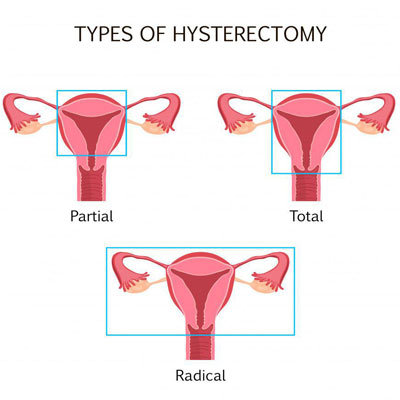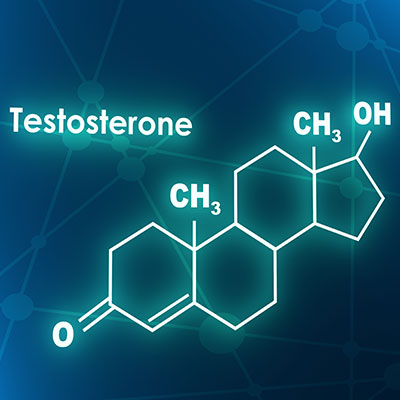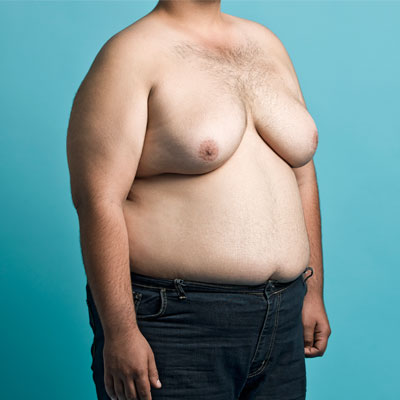Varicocele and Testosterone Deficiency
Contents
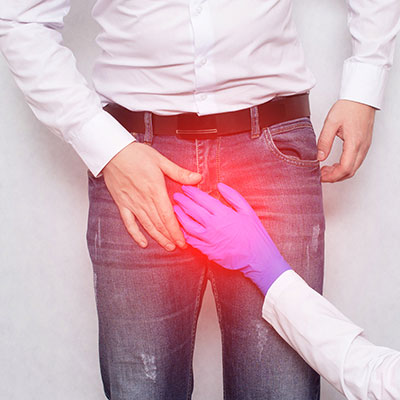
As many as 15 percent of men have varicoceles, masses of enlarged and dilated veins in the testicles. Among other issues associated with varicoceles, including their known impact on fertility, new research suggests that having the condition could interfere with testosterone production leading to low testosterone.
What is Varicocele?
Varicoceles occur when the veins in the scrotum become enlarged due to poor blood flow. Veins have one-way valves, and when they’re faulty, blood can begin to pool in the scrotum, causing the veins to become enlarged. These enlarged veins are called a varicocele.
What Are the Symptoms of Varicocele?
Varicocele veins can be asymptomatic, but they could become more visible or problematic over time. When a varicocele reaches a certain size, men may begin to experience symptoms.
The top 5 signs or symptoms of a varicocele include:
- Scrotal mass: Lumps in one of the testicles.
- Heavy sensation: Swelling in the scrotum that is aggravated by lifting weights.
- Veins: Enlarged or twisted veins that are quite noticeable.
- Pain: Dull or sharp recurring ache in the scrotum with the pain gradually worsening throughout the day or with physical exertion. When you lie on your back, you feel better.
- Infertility, impotence, and spontaneous or involuntary ejaculation: Typically, men with varicoceles have lower or impaired testosterone production. Some men who have varicoceles have erectile dysfunction and reduced virility.
Apart from the above, men may have testicular atrophy.
- Another symptom of varicocele is testicular atrophy or shrinkage.
- During a sports physical exam, adolescent boys are frequently diagnosed with the condition when one testicle is smaller than the other.
How Can Varicoceles Affect Testosterone Levels?
There is evidence that varicoceles could contribute to testosterone deficiency. Testosterone is a hormone that is produced primarily in your testicles. It is the primary male hormone and is responsible for regulating male characteristics, including sexual development and sexual function.
Testosterone also plays an important role in overall health, impacting strength, energy, emotional stability, and cognition. Since the testicles are the main source of testosterone in men, it stands to reason that anything – like varicoceles – that negatively impacts the testicles could also interfere with testosterone production. Current research seems to indicate that this is indeed the case.
A recent study conducted by New York-Presbyterian Hospital/Weill Cornell Medical Center was the latest to indicate this link between varicoceles and low testosterone. The study looked at the testosterone levels of men with varicocele before and after they had surgery to correct the condition.
The researchers measured the preoperative testosterone levels of 325 men with varicoceles and in 510 men without varicoceles. They found that men at every age with varicoceles had significantly lower testosterone levels (416 vs. 469 ng/dL) than the comparison group. After undergoing microsurgical varicocelectomy, testosterone levels significantly increased in 70 percent of the patients, with a mean increase of 178 ng/dL.
This study and others have shown that men with the condition who are also experiencing the symptoms of low testosterone can see improvements in their testosterone level with surgical reversal of the varicocele veins.
Testosterone is produced by specialized cells in the testes known as Leydig cells. The researchers concluded that the bulging and restricted veins of the varicoceles somehow interferes with Leydig cell function.
Testosterone replacement therapy has also been shown to be beneficial in such men who choose not to opt for surgical interventions or other treatment of varicocele.
Do Varicoceles Need to Be Treated and What is the Treatment?
Conventional wisdom used to be to just leave varicoceles alone if they were not causing pain or otherwise inconveniencing the man with the condition.
Fertility doctors will typically advise men to get the condition corrected in order to increase their chances of conception.
However, now that we know about the link between low testosterone and varicoceles, it is now suggested that even men who have no intention of fathering children, or with no obvious symptoms, may benefit from treatment for long-term physical health because a corrective procedure has been proven to improve testosterone levels.
Basically, there are two treatment options to correct varicocele:
- Surgery.
- Varicocele embolization.
Varicocele Surgery
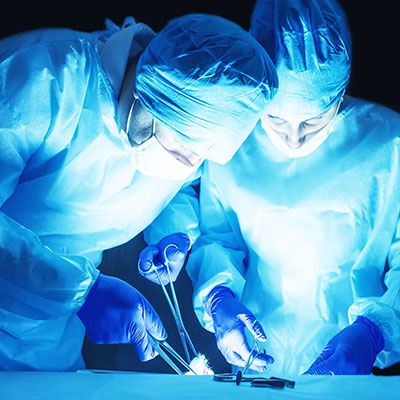
- Open surgery.
- Microsurgical approach.
- Laparoscopic surgery.
All three types of surgery involve an incision. One of the primary differences is the size and placement of the incision. Many doctors favor the microsurgical approach; however, there are differing opinions on which technique is the best.]
The important thing to remember about surgery is all three types have similar outcomes in terms of their success and frequency of recurrence. Each approach shows that 1 in 10 men will have a varicocele recurrence. Recovery time is about two weeks, and the time until the resumption of sexual activity is about four weeks after the surgery.
Varicocele Embolization
Varicocele embolization, a minimally invasive approach to varicocele management, is becoming more popular because it is a viable alternative to varicocele surgery. It is performed by an interventional radiologist on an outpatient basis. It typically takes about an hour. The recovery period is, on average, two days, and you should be able to resume sex after a week.
Varicocele embolization has proven to have similar results to surgery and is often recommended for men experiencing a varicocele recurrence.
In the Cornell study mentioned above, varicocele corrective surgery in men with varicoceles and low testosterone resulted in significant increases in testosterone production. Therefore, men with varicocele and low testosterone should seriously consider surgical correction of the condition.
What Does the Medical Research Say About Varicocele and Testosterone?
The NYP-Cornell study mentioned above was published in 2011 in the Trusted sourceVaricocele as a risk factor for androgen deficiency and effect of repairPubMedGo to sourceBritish Journal of Urology. The study concluded, “Men with varicoceles had significantly lower testosterone levels than the comparison group of men. Microsurgical varicocele ligation resulted in a significant increase in serum testosterone levels in more than two-thirds of men. These findings suggest that varicocele is a significant risk factor for androgen deficiency and that repair may increase testosterone levels in men with varicocele and low testosterone levels.”
In addition, a far more recent study, this Trusted sourceEffect of Varicocele and Its Treatment on Testosterone in Hypogonadal Men with Varicocele: Review of the LiteratureNCBIGo to sourceone published in 2020, also confirmed that Varicocele might cause deterioration in Leydig cell functions, and the condition is a significant risk factor for testosterone deficiency. The study concluded, “[This study] and experience from large clinical studies in the literature suggests that varicocele repair may increase serum testosterone level in men with varicoceles and testosterone deficiency. Varicocele repair could be offered to men with clinically palpable varicocele and hypogonadism.” And that, “Symptomatic hypogonadal men with varicoceles have two options: testosterone replacement therapy or varicocele treatment. Both approaches have some advantages and disadvantages.”
If you have varicocele and low testosterone, see your doctor for the best treatment options for your particular symptoms, goals, and lifestyle.
Now that you understand more about the relationship between low testosterone and varicoceles, why don’t you take a minute to contact us and see if testosterone therapy may be right for you?
FAQ
1. What Is Varicocele?
In the most basic terms, varicocele is a varicose vein that forms inside of your scrotum. Varicoceles may result in changes in your scrotum and/or your testicles. You may notice swelling or shrinking. For many men, varicoceles begin to appear in puberty, although adult men can also develop the condition over time.
Varicocele results when blood flow through the veins in the scrotum is affected in a manner that causes the blood to pool rather than flow. This flow disruption can cause the affected veins to swell.
2. How Common Are Varicoceles?
Approximately 15 to 17 percent of all men have varicoceles. They are most prevalent in males aged 15 to 35. Among infertile couples, nearly 30 percent of men have varicoceles.
3. What Causes Varicocele?
It is not entirely clear what exactly causes varicoceles, but doctors have identified two known contributing factors:
- Malfunctioning Venous Valves – In the circulatory system, veins have valves that control the direction of blood flow. Sometimes these valves fail. When this occurs, normal blood flow is disrupted, which may cause the blood to pool rather than flow. Researchers have not found a root cause for why valves in the circulatory system stop working.[iv]
- Accident or Injury – Trauma or injury can also lead to varicocele. Adolescent boys are more prone to have an accident as a cause of their varicocele.
4. Do Varicoceles Cause Infertility?
Yes, varicocele veins can impact a man’s ability to conceive. In fact, it's often an appointment with a fertility doctor that leads to the discovery of the condition in the first place because it is not uncommon for men with varicocele to have no symptoms at all.
Statistics show that in 30% of infertile couples trying to conceive for the first time, varicocele is identified as the primary cause of their infertility. It is believed that varicocele affects fertility by reducing sperm count and the health or mobility of sperm.
5. Can Varicocele Cause Erectile Dysfunction?
Since your ability to get and maintain an erection is based on good blood flow in the vessels that provide blood to the erectile tissue of the penis and varicocele veins are caused by impaired blood flow, it stands to reason that men with varicocele veins are likely to be suffering from erectile dysfunction as well. The conditions, therefore, are linked, but one does not directly "cause" the other.



